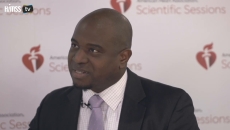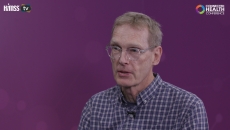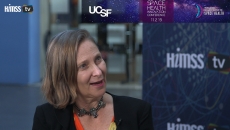Precision Medicine
Cloud Computing
A study published in Nature suggests its model was able to spot cancer in de-identified screening mammograms with fewer false positives and false negatives than experts.
The pharma company will work with MIT's School of Engineering to establish an education program focused on developing new machine learning approaches to drug development and more.
BioLabs@NYU Langone, billed as the largest of its kind in New York City, will house more than 35 early-stage biotechnology and life sciences companies and 160 scientists and staff.
The center will use precision genomics to discover, address and treat genetic diseases, many of which affect infants and children and can cause life-long disability.
Azizi Seixas, with the Department of Population Health and the Center for Healthful Behavior Change at NYU School of Medicine, talks about using risk assessment tools to close the health access gap.
The health system's second "big omics data engine," or BODE 2, funded in part by HHS, will have 15 terabytes of memory, 14 petabytes of raw storage and a peak speed of 220 teraflops per second – nearly double that of its predecessor.
Speaking from experience, Bradford Power, founder of Reengineering Cancer Treatment and an author focused on process improvement, discusses the ways oncology treatment needs to become more personalized.
Dr. Annette Sobel, professor at Texas Tech University and board member at the Translational Research Institute for Space Health, talks about the research of human physiology and human factors in space medicine.
Genomic medicine researchers at the laboratory have been using artificial intelligence, developed as part of Microsoft's Project Hanover, to help manage the vast amount of research data needed to power its precision oncology initiatives.
More than 30% of the health system’s employees have signed up for a precision medicine program that helps get predictive genomics data straight to frontline caregivers.


